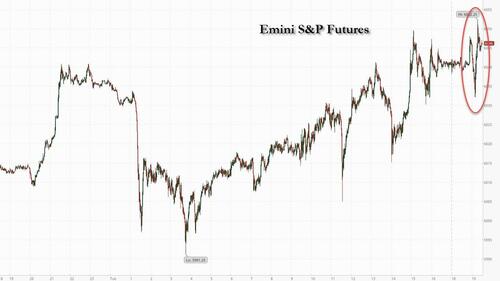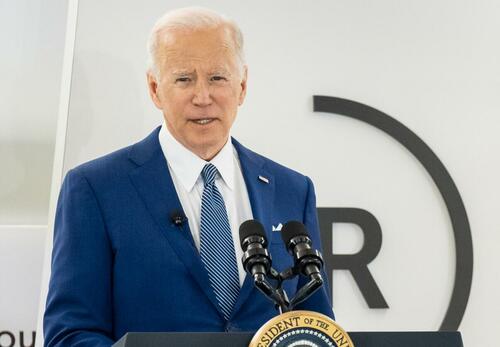US equity futures dropped into today's CPI print after traders weren't moved by the US-China trade talks, which saw the two two sides agree on a framework to implement last month’s Geneva deal with few actual details. There’s also nervousness ahead of inflation data: a hot reading would be a big risk factor for a market near record highs (see full preview here). As of 8:00am ET, S&P and Nasdaq 100 futures traded 0.2% lower but were off session lows; pre-market Mag7 names are mostly higher with TSLA (+2%) the standout after a contrite Elon Muskusk tweeted "I regret some of my posts about President @realDonaldTrump last week. They went too far." Semis and Cyclicals are poised to outperform. In other trade news, US/Mexico were close to a deal on steel tariffs by using import caps, which would be higher than the previous cap, and would remove the 50% tariff on steel below said cap; this looks like a reversion to 2018 levels and may be a template for talks with Canada. The G7 summit will carry additional weight as we are a month away the expiration of the 90-day tariff delay, with only a US/UK framework on the tape. Elsewhere, the EU is said to see talks with the US going beyond a July 9 deadline. The yield curve is twisting steeper with 10Y yields higher, the USD is slightly higher and commodities rise with crude and gold higher after Trump told the NY Post that he’s getting “less confident” about nuclear talks with Iran; natgas and base metals also rallied with Ags are down. The key event today is the CPI report at 8:30am ET where economists expect a relatively tame number, with core inflation up 0.3% in May. Positioning suggests a hotter print will be punished more than a dovish one will be rewarded, according to JPMorgan.
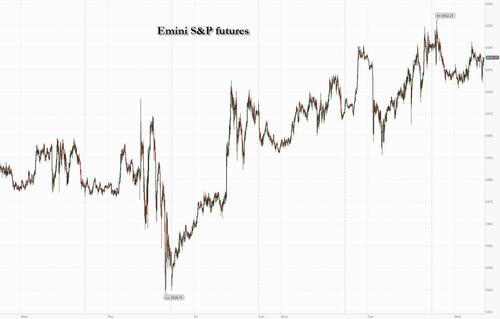
In premarket trading, Tesla rose over 2% in, outperforming Magnificent 7 counterparts after Elon Musk expressed regret over his recent social-media outburst directed at Trump.
I regret some of my posts about President @realDonaldTrump last week. They went too far.
— Elon Musk (@elonmusk)
June 11, 2025
Other Mag7 moves: Alphabet -0.1%, Microsoft -0.4%, Apple little changed, Nvidia little changed, Amazon -0.4%, Meta Platforms -0.3%. Steel stocks fell as the US and Mexico close in on a deal that would remove 50% tariffs on steel imports up to a certain volume — seen to erode the advantage US steelmakers would have benefited from if imports from Mexico faced higher rates. (Cleveland-Cliffs drops 5%, Nucor -3%, Steel Dynamics -1.6%). Here are some other notable movers:
- Cleveland-Cliffs (CLF) drops 5%, Nucor (NUE) -3%, Steel Dynamics (STLD) -1.6%
- American Superconductor (AMSC) falls 16% after the grid systems provider was said to offer shares at a discount.
- Chewy Inc. (CHWY) falls 6% after the pet food company posted first quarter results.
- Dave & Buster’s (PLAY) gains 6% after commentary that sales are improving reassured analysts, even as the restaurant and entertainment company’s first-quarter results came in lighter than expected.
- Etsy (ETSY) falls 3% after the online marketplace announced a proposed private offering of $650 million of convertible senior notes
- GameStop (GME) declines 5% after the video-game retailer posted a 17% decrease in 1Q net sales.
- Getty Images (GETY) jumps 5% after Shutterstock shareholders approved their merger agreement. Shutterstock (SSTK) gains 5%.
- Lockheed Martin Corp. (LMT) slips 2% after the Air Force has cut in half its request to Congress for its signature F-35s, dealing a blow to the top US defense contractor.
Tuesday’s thinly detailed outcome of the Trump administration’s trade talks with China in London left traders and investors underwhelmed. Markets were watching whether the world’s top two economies could damp down tensions that economists say have tipped the global economy into a downturn. After some 20 hours of negotiations, US officials said both sides had established a framework to revive the flow of sensitive goods, even though the plan still needs sign-off from Trump and Xi Jinping.
“A preliminary agreement doesn’t fill me with enthusiasm in terms of this being resolved,” Guy Miller, chief market strategist at Zurich Insurance Co., told Bloomberg TV. “This is going to continue to be pushed down the line.”
On Wednesday morning, Trump tweeted that the "deal with China is done" and that "we are getting a total of 55% tariffs, China is getting 10%."
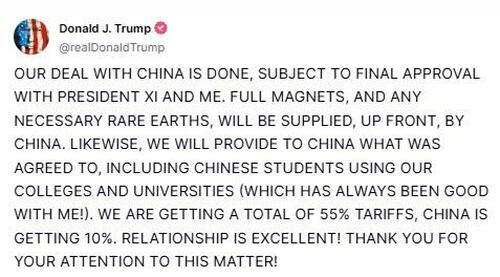
In other trade news, a Federal Court of Appeals extended an earlier, short-term reprieve for the administration as it presses a challenge to a lower court ruling last month that blocked tariffs. Steel stocks are trading lower after Bloomberg reported the US and Mexico are closing in on a deal that would remove 50% tariffs on steel imports up to a certain volume.
Trade (non) deal aside, CPI is top of mind today. Economists expect a relatively tame number, with core inflation up 0.3% in May. Positioning suggests a hotter print will be punished more than a dovish one will be rewarded, according to JPMorgan (full CPI preview here). Economists expect a modest impact from tariff pass-through for goods that are mostly imported. They see inflation rising 0.3% from April after increasing 0.2% the previous month, excluding the volatile food and energy categories. The core CPI, which is regarded as a better indicator of underlying inflation, is seen accelerating for the first time this year — to 2.9% — on an annual basis.
The CPI report, along with producer price data due Thursday, will offer Federal Reserve officials a final look at inflation and the impact of high tariffs before they gather next week Traders are increasingly betting that policymakers will cut rates only once this year.
“It is not expected to be market-moving for now but that could increase the scope for an impact from a big surprise,” said Geoff Yu, FX and macro strategist at Bank of New York Mellon Corp. “We expect a more data-driven session as some repositioning is needed ahead of a key central bank week.”
Investors have been shifting to under-owned, riskier pockets of the market like small caps and high-beta stocks, with Nomura strategist Charlie McElligott citing a “right-tail” risk. Nasdaq has led the recent US equity gains, while technicals are becoming tricky with RSI and MACD indicators showing a bearish divergence.
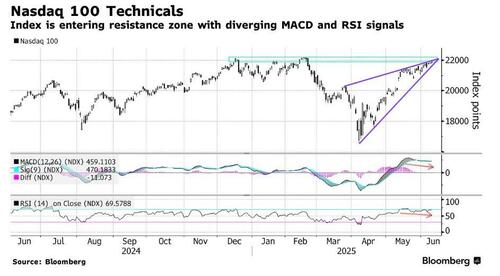
Global stocks are likely to rally another 3% into the end of the year, while in Europe, there’s scope for corporate earnings to see more upgrades, according to Citigroup.
Concerns about a ballooning US budget deficit and demand for long-end bonds have caused the yield on 30-year Treasuries to spike in recent weeks. A downgrade of US sovereign debt by Moody’s Ratings last month has prompted Hong Kong pension fund managers to form a preliminary plan to sell down their holdings if the US loses its last recognized top credit rating, Bloomberg News reported Wednesday.
In Europe, the Stoxx 600 is flat as banking and basic resources lead stocks, while the retail sector is the biggest laggard, with Inditex SA falling 6.4% after Zara owner’s sales missed estimates. Here are the most notable European movers:
- Bayer shares rise as much as 2.8% to their highest value since October as HSBC and Kepler Cheuvreux upgrade the German pharmaceutical and chemicals company to buy from hold.
- Demant shares rise as much as 4%, to the highest since Jan. 31, after the Danish company agreed to acquire hearing-aid retailer KIND Group for €700m, or around DKK5.2b, on a cash and debt-free basis.
- Quilter advances as much as 4.9%, as UBS upgrades the wealth management firm to buy from neutral and sets a Street-high target on greater conviction of a recovery in flows.
- Assura shares rise as much as 2.5% after KKR and Stonepeak made their best and final offer for the healthcare property group.
- European mining shares are among the best-performing sectors in the Stoxx 600 benchmark, as iron ore and base metals gain after the US and China agreed to a preliminary plan to ease trade tensions.
- Inditex shares drop as much as 6.4%, the day’s worst-performer in the Stoxx 600 Index, after the Spanish retailer reported a muted start to the second quarter and warned that foreign-exchange headwinds could have a large impact on results this year.
- Fuller Smith & Turner shares slip as much as 2.2% after the pub and hotel operator issued a trading update. Peel Hunt downgraded the stock, noting that growth in the group’s like-for-like sales eased slightly in the first weeks of fiscal year 2026, after a “strong year.”
- Deutsche Boerse shares drop as much as 2.8% to trade at a six-week low after being downgraded by UBS, with analysts arguing there is limited room for further consensus upgrades or multiple expansion.
- Ibstock shares plunge as much as 18%, the most since 2016, after analysts warned the building materials supplier’s higher costs and lower pricing has led to a weaker earnings outlook for this year.
- Technoprobe shares drop as much as 8.6% to €6.9, after the Italian chipmaker’s main shareholder T-Plus announced the sale of a 1.53% stake at a price of €7 per share.
- GlobalData shares fall as much as 17%, the most since January 2009, after the analytics firm announced that it has terminated discussions with private equity firm ICG over its possible cash offer.
Asian stocks rose, with sentiment lifted by a preliminary deal between the US and China to de-escalate trade tensions. The MSCI Asia Pacific Index rose as much as 0.4%, on track for a third day of gains. Chip stocks provided the biggest boost after TSMC posted a 40% increase in May revenue, in a sign of resilient AI demand. Most regional gauges were in the green. Chinese equities led gains in the region, with the onshore benchmark CSI 300 Index climbing 0.8%, the most in nearly a month. The Hang Seng China Enterprises Index gained as much as 1.4%. South Korea’s Kospi rose 1.2%, capping a sixth-straight daily advance. Risk-on trades got a lift after negotiators from the world’s two largest economies said they had agreed on a framework on how to implement the consensus reached in their prior round of discussions. Officials at the talks in London are expected to take the latest proposal back to their respective leaders in Washington and Beijing.
In FX, the Bloomberg Dollar Spot Index is little changed. The euro and Swiss franc are the best performing G-10 currencies, rising 0.2% each. The kiwi is the laggard with a 0.2% fall.
In rates, treasuries decline ahead of CPI data, following a bigger drop for UK gilts, where focus is on fiscal policy ahead of Chancellor Rachel Reeves’ spending review. US session includes May CPI data and 10-year note auction. US yields are 1bp-4bp cheaper across a steeper curve, with 2s10s and 5s30s spreads unwinding most of Tuesday’s flattening move. 10-year near 4.50% is ~3bp cheaper on the day; German counterpart is comparable; Gilts lead a selloff in European government bonds, pushing UK 10-year yields up ~6 bps to 4.60%. Bunds pare declines after solid demand at a 10-year auction.
In commodities, spot gold climbs $14 to around $3,337/oz. Oil prices swing, with WTI now up 0.9% to around $65.50.
Bitcoin finds itself in the red this morning, specifics for the space light after a handful of equity-related updates for the complex overnight.
To the day ahead now, and as we previewed earlier, look out for the US May CPI release as well as the federal budget balance data. Also worth mentioning that the US 10-yr treasury auction will be held. We’ll also get the Canada April building permits. In terms of central bank speakers, we’ll hear the ECB’s Lane and Cipollone speak. Earnings include Oracle and Inditex
Top Overnight News
- The US and China agreed on the outlines of a plan to revive the flow of sensitive goods. Howard Lutnick said Beijing pledged to speed up rare earth metal shipments, while Washington would ease some export controls. The agreement still needs approval from Donald Trump and Xi Jinping. BBG
- Los Angeles Mayor said they declared a local emergency and a curfew for Downtown Los Angeles from 8pm-6am which is expected to last several days.
- Tesla (TSLA) CEO Musk posts "I regret some of my posts about President Trump last week. They went too far."
- The US Court of Appeals Tues night ruled that Trump’s IEEPA tariffs (which includes the 10% baseline, the suspended reciprocal tariffs, and the fentanyl tariffs on Mexico, Canada, and China) will stay in place for the duration of the appeals process, but with the case expedited with oral arguments scheduled for Jul 31. Court of Appeals
- EU hopes to have a tentative framework agreement in place by the Jul 9 reciprocal tariff suspension deadline, but warns that a full deal will require more time. BBG
- The US and Mexico are closing in on a deal that would remove President Donald Trump’s 50% tariffs on steel imports up to a certain volume, according to people familiar with the matter, a revamp of a similar deal between the trade partners during his first term. BBG
- Oil rose after Trump told NYP that he’s getting “less confident” about nuclear talks with Iran. Benchmark Treasury yields and gold rose. BBG
- Senate Republicans back off plans to make changes to Medicare in the reconciliation bill. Politico
- Tesla set June 22 as a tentative launch date for its robotaxi service. BBG
- Japan’s PPI cools by more than anticipated, coming in at +3.2% Y/Y (vs. the Street +3.5% and down from +4.1% in Apr). BBG
Market Snapshot
- S&P 500 mini -0.1%
- Nasdaq 100 mini little changed
- Russell 2000 mini +0.2%
- Stoxx Europe 600 +0.1%
- DAX +0.4%
- CAC 40 +0.4%
- 10-year Treasury yield +2 basis points at 4.49%
- VIX little changed at 16.98
- Bloomberg Dollar Index little changed at 1210.19
- euro +0.1% at $1.144
- WTI crude little changed at $65.01/barrel
Trade/Tariffs
- US Commerce Secretary Lutnick said they have reached a framework to implement the Geneva consensus and the outcome from the leaders' call on June 5th, while he added that they are going to go back and see if US President Trump approves it and if approved, they will implement it. Lutnick noted the idea behind this is to increase trade with China with the framework the first step and they had to get the negativity out. Furthermore, he said they expect the rare earths and magnets issues will be resolved in this framework and he reiterated that they reached a framework to implement the agreements reached.
- USTR Greer said they are focused on full compliance and don't have another meeting scheduled but added they are in constant contact with China and are moving as quickly as they can. Greer stated that they feel positive about engaging with the Chinese and expect to see progress from China on fentanyl, while he noted it is up to the President whether the deadline gets extended.
- Chinese Vice Commerce Minister Li Chenggang said talks with the US had involved in-depth exchanges and communication had been rational and candid, while the two sides reached a consensus regarding the Geneva meeting. Li added he will report on the framework to leaders and hopes the progress is conducive to increasing the trust between China and the US.
- Chinese Foreign Ministry spokesperson Lin says no information to offer on US-China meeting in London.
- China Vice Premier, on China-US talks in London, says China's stance on trade issues with the US is clear and consistent; China not willing to fight but not afraid to fight; vows to reduce misunderstanding with the US. Both sides should enhance consensus. Both sides should jointly safeguard the hard won outcome from the dialogues. Both sides should maintain communication. Should push for stable and long-term China-US trade and economic ties. China is sincere in trade and economic consolations but has its principle.
A more detailed look at global markets courtesy of Newquawk
APAC stocks were mostly higher amid the recent trade-related optimism stemming from the US-China trade talks in London which have now concluded and where officials reached a framework to implement the Geneva consensus and outcome from the recent Trump-Xi call. ASX 200 advanced to print a fresh record high in early trade before paring some of the gains amid little fresh catalysts. Nikkei 225 marginally benefitted from recent currency weakness and softer-than-expected PPI data. Hang Seng and Shanghai Comp gained following the progress in US-China trade talks, albeit with the upside in the mainland capped given the lack of solid details.
Top Asian News
- Hong Kong Financial Secretary Chan said expect equity markets to continue to be strong and the IPO pipeline remains strong.
- BoJ Governor Ueda said markets' risk adverse moves are subsidising somewhat but uncertainty is very high, according to a cabinet member; Ueda said the BoJ will continue to scrutinise market moves, and its impact on the economy. Told those in the Monthly economic report: that domestic financial conditions remain accommodative
European bourses are generally marginally firmer, EuroStoxx 50 +0.2%, defying indications for a slightly softer cash open. However, this comes with the exception of the IBEX 35 -0.8%, given marked pressure in Inditex (-3.3%).
Sectors are mixed with Retail -1.0% the laggard given the above Inditex action. Basic Resources, Tech, Consumer Products & Services all benefit from the US-China updates. Stateside, futures are modestly into the red with subdued trade despite the framework agreement between US-China officials as we now await the response from President's Trump & Xi; ES -0.3%. Attention in the meantime firmly on CPI. NVIDIA (NVDA) CEO Huang says there is an inflection point happening in Quantum computing.
Top European News
- ECB and PBoC sign MoU on cooperation in the field of central banking, according to a press release.
- BoE confirms re-calibration of indexed long-term repo operation.
- ECB's Vujcic says he's looking for more clarity on the trade front.
- ECB's Kazaks says it is "quite likely" that 2% inflation will require some further cuts for fine tuning, via Econostream on X; market pricing of one or more cut is not out of the realm of the baseline. May at some point go into accommodative territory. So far, seems the deflationary effect of trade tensions could dominate, but the final outcome is open.
- ECB's Lane says last week's rate cut will guard against any uncertainty about the Bank's reaction function by showing they are committed to returning inflation to target; conditions today are far more favourable for blue EU bond issuance on prudent scale.
- UK Foreign Secretary Lammy is reportedly en-route to Brussels to sign off on UK-Spain deal over Gibraltar's post-Brexit future, via Telegraph's Barnes.
FX
- DXY has seen a bit of two-way action this morning. Initially contained in the wake of US-China talks before coming under a little bit of pressure and losing 99.0 to the downside as EUR and GBP picked up. Nonetheless, the index remains within yesterday's 98.86-99.39 range.
- EUR unreactive to ECB officials this morning with macro drivers for the bloc light. Latest ECB wage tracker was hawkish but sparked no move. Given US CPI shortly, the USD-side of the equation will likely dictate the Single Currencies fortunes, currently in Tuesday's 1.1373-1.1447 band.
- JPY a touch softer, USD/JPY holding above 145 in a 144.66 to 145.24 band. Japanese PPI metrics printed softer-than-expected overnight, which is also adding to the weakness in the JPY. Handful of remarks from Ishiba recently, though no follow through just yet.
- Cable unable to recoup much of the lost ground seen in the wake of yesterday's soft UK jobs report which sent the pair to a 1.3457 session low. Currently just about in the green against the USD, holding at 1.35.
- PBoC set USD/CNY mid-point at 7.1815 vs exp. 7.1801 (Prev. 7.1840).
- JPMorgan revises USD/CNY target to 7.15 (prev. 7.30), cites moderating tariff risks and de-dollarisation theme, expects "gentle downtrend" to 7.10 by Q2 25.
Fixed Income
- Fixed benchmarks pressured across the board. Gilts the underperformer after Tuesday’s session of pronounced gains. Gilts opened softer by a handful of ticks, before extending to current losses of c. 30 ticks; marginal pressure around supply, largely awaiting the Spending Review.
- Aside from ECB speak, which has not influenced price action, updates for EGBs have been light. Bunds in the red by around 15 ticks, but still higher by around 40 ticks WTD.
- USTs softer but, compared to the above, are much closer to the unchanged mark. As we await updates from the US and/or China President, CPI and then 10yr supply (3yr passed without impact). Amidst this, yields firmer across the curve which is slightly steeper.
- UK sells GBP 4.25bln 4.50% 2035 Gilt: b/c 2.98x (prev. 3.13x), average yield 4.588% (prev. 4.673%) & tail 0.3bps (prev. 0.3bps).
- Germany sells EUR 2.336bln vs exp. EUR 3.0bln 2.50% 2035 Bund: b/c 2.7x (prev. 2.4x), average yield 2.54% (prev. 2.66%) & retention 22.13% (prev. 23.7%).
- Hong Kong pensions intend to cut USTs if the US loses its AAA grade, via Bloomberg.
- PIMCO’s fixed income CIO Balls said, on BBG TV, the five to ten year part of the US curve is where you would want to be. Adds, Japan looks like an opportunity. On today’s UK Spending Review, Balls remarked that it should not be a significant market event.
Commodities
- Initially, a mild upward tilt across the crude benchmarks after Tuesday's declines. However, the complex returned to earlier lows amid commentary from the Iranian Foreign Minister on the potential for a nuclear agreement this weekend.
- WTI Jul moved to the bottom of a USD 64.60-65.68/bbl range while Brent Aug sits in a USD 66.47-67.10/bbl parameter on the above; since, the benchmarks have bounced and are now marginally firmer once again. Potentially picking up as Trump says he is less confident about an Iran deal, speaking with the NY Post.
- Spot gold gradually edges higher but just about remains within yesterday's parameters after recent choppy performance and with US CPI on the horizon.
- Base metals mixed, copper struggled for direction overnight awaiting US-China developments. Elsewhere, a handful of production updates from Codelco, Collahuasi, Escondida and China also factoring.
- US Private Inventory Data (bbls): Crude -0.4mln (exp. -2mln), Distillates +3.7mln (exp. +0.8mln), Gasoline +3.0mln (exp. +0.9mln), Cushing -0.7mln.
- Chinese steel production is expected to decline by 4% in 2025, according to the China Iron and Steel Association.
Geopolitics
- Iranian Foreign Minister "As we resume talks on Sunday, it is clear that an agreement that can ensure the continued peaceful nature of Iran's nuclear program is within reach—and could be achieved rapidly.". Thereafter, US President Trump is less confident about the Iran deal, according to a New York Post podcast interview.
- Iranian Foreign Minister says "Trump's position on Iran's possession of nuclear weapons could form the basis of the agreement ", according to Al Arabiya.
- US Secretary of State Rubio said the US condemns sanctions imposed by the governments of the UK, Canada, Norway, New Zealand, and Australia on two sitting members of the Israeli cabinet. Rubio also stated that Israel sanctions do not advance US-led efforts to achieve a ceasefire, bring all hostages home, and end the war, while he added that the US urges a reversal of the sanctions.
- "Iran's Defense Minister warns on US officials' threats of conflict should negotiations falter: We hope for successful talks, but if conflict is imposed on us, Iran will respond decisively, targeting all US bases in host countries.", via Journalist Aslani.
- "Iran successfully tested a missile equipped with a two-ton warhead last week", according to Iran International citing the Iranian Defence Minister.
Economic Data
- 7:00 am: Jun 6 MBA Mortgage Applications 12.5%, prior -3.9%
- 8:30 am: May CPI MoM, est. 0.2%, prior 0.2%
- 8:30 am: May CPI Ex Food and Energy MoM, est. 0.3%, prior 0.2%
- 8:30 am: May CPI YoY, est. 2.4%, prior 2.3%
- 8:30 am: May CPI Ex Food and Energy YoY, est. 2.9%, prior 2.8%
- 2:00 pm: May Federal Budget Balance, est. -314b, prior -347.13b
DB's Jim Reid concludes the overnight wrap
I have a dark secret I'm holding onto at the moment. It's my birthday tomorrow and over the weekend our family photo stream had pictures of one of my presents. My wife is not as tech savvy as she could be. A voucher for a round with Rory Mcllroy? No sadly, but instead a portrait for my office (I assume) of our dog Brontë swinging a golf club dressed in plus fours. It's very amusing and cute. I will show surprise and gratitude tomorrow. If I do a WFH webinar again no doubt I'll show you all and you can smile or shake your head with horror.
Overnight, US and Chinese negotiators have said they've agreed on a framework of how to implement the agreement reached at talks in Geneva last month. The main details came from Commerce Secretary Lutnick, who said that “We do absolutely expect that the topic of rare earth minerals and magnets” will be resolved and that export controls implemented by the US should come down as China approves relevant export licenses. China’s trade representative Li Chenggang said that the US and Chinese delegations will now take the proposal back to their respective leaders, with Lutnick noting that “once the presidents approve it, we will then seek to implement it”. At the same time, there was no evidence of progress on topics such as the fentanyl-related 20% tariffs on China that the US has implemented since February. So while the mood music has stayed positive, investors may be wary of the pattern that emerged during the previous US-China trade talks in 2018-19, when apparently constructive in person meetings seemed to take a step back as the negotiating teams returned to their capitals. So there's perhaps a little disappointment this morning that we haven't yet got a bigger announcement, even though there's time to hear the full conclusions of the meeting.
In other trade news last night, the US Court of Appeals extended its temporary reprieve for the administration’s tariffs that had been blocked by the US Court of International Trade in late May, as it scheduled arguments in the case for July 31. So that leaves wide-ranging tariffs imposed under the International Emergency Economic Powers Act in place, while confirming that the legal uncertainty over their use will remain unresolved until well after the July 9 deadline for the reciprocal tariff delay. Separately, Bloomberg reported yesterday that the US and Mexico are close to a deal that would remove 50% of steel imports from Mexico up to a certain quota, adding to the sense that sectoral tariffs are up for negotiation in US talks with trading partners.
Turning to yesterday’s market moves, given the focus on export controls that have affected chips and rare earth metals, and the hope the restrictions would be eased, semiconductor and technology stocks benefited, helping to lift US equities more broadly. For instance, the Philadelphia Semiconductor Stock Exchange (+2.06%) continued to rally on the hope for a positive outcome, advancing for the third consecutive day. Similarly, the Mag-7 also advanced +1.29% thanks to Tesla’s (+5.67%) continued recovery as well as decent gains for Alphabet (+1.43%) and Meta (+1.20%). And chipmaker TSMC was up +3.98% after the company reported monthly sales that climbed +39.6% in May.
Another notable story yesterday was a Bloomberg report that Treasury Secretary Bessent was being considered as a potential successor to Powell as Fed Chair. However, the report acknowledged that formal interviews for the role have not yet begun, and later in the day the White House denied that Bessent was a contender for the Fed job. The story follows comments by Trump last Friday that the decision on the next Fed Chair may be “coming out very soon” and yesterday our US economists published a note with initial thoughts on the topic of Powell’s replacement.
Looking forward, the focus will now turn back to inflation, with the May CPI results coming out later. Our US economists have a full preview here, and their view is that weak seasonally adjusted gas prices should continue to keep monthly headline CPI (+0.20% expected) below core inflation (+0.31% expected). A critical thing to look out for will also be the tariff pass-through, so they’ll be focusing on core goods prices, especially in categories like household furnishings and supplies categories, which saw some preliminary impact in the April data. Bear in mind that even with the 90-day tariff extension, the baseline 10% tariffs have still been in place for the entire month, and the reduction in the China tariffs from 145% to 30% wasn’t announced until May 12, so there were plenty of tariffs in place in May.
Speaking of inflation, there were fresh signs of inflationary pressure from the NFIB’s small business optimism index. In particular, a net 31% said they were planning to raise average selling prices, the highest share in over a year. But there was some brighter news, as the headline index showed that for the first time in 2025, small business had grown more optimistic, with the headline gauge up to 98.8 in May (vs. 96.0 expected), and up from 95.8 the previous month. So that points to a rebound in sentiment as the administration have dialled back tariffs in recent weeks.
Ahead of the CPI print, US Treasuries were pretty stable yesterday with an ongoing flattening of the curve. For instance, the 2yr yield (+1.6bps) moved up to 4.02%, whilst the 10yr yield (-0.4bps) fell to 4.47%, marking the flattest level of the 2s10s slope in two months. Those modest moves came amid an uneventful 3yr auction that saw $58bn of notes issued +0.4bps above the pre-sale yield. This will be followed by a 10yr auction today, and then a 30yr auction tomorrow, which will be an important focal point given recent fiscal fears.
Over in Europe, the latest UK labour market data pointed to growing weakness in Q2. In particular, the number of payrolled employees was down -109k in May (vs. -20k expected). Moreover, average weekly earnings growth fell to +5.3% in the three months ending April (vs. +5.5% expected). So that led investors to dial up the likelihood of rate cuts by the Bank of England, with the probability of a rate cut by the August meeting up to 81%. In turn, that meant gilts outperformed their European counterparts, with the 10yr yield falling -9.0bps. By contrast, there were smaller moves elsewhere, including for 10yr bunds (-4.1bps), OATs (-3.7bps) and BTPs (-5.1bps). The latest move also means the 10yr Italian-German spread edged down again to just 91.3bps, the tightest since February 2021.
European equities saw a mixed performance, with the STOXX 600 little changed (-0.02%). Defence stocks saw some pullback after their strong performance so far this year, with Rheinmetall (-5.80%), BAE Systems (-2.63%) and Thales (-3.63%) dragging European markets down. That left Germany’s DAX (-0.77%) and Italy’s FTSE MIB (-0.65%) underperforming for a second day running. On the other hand, France’s CAC (+0.17%) and UK’s FTSE 100 (+0.24%) posted modest gains, with the FTSE having been briefly on track for a record closing high intraday.
In Asia, the Hang Seng (+0.95%), the CSI (+0.82%), and the Shanghai Composite (+0.54%) are all making gains, supported by hopes for improved trade relations with the US even if S&P (-0.32%) and NASDAQ futures (-0.32%) seem a little disappointed we haven't got more information so far. Elsewhere, the KOSPI (+0.91%) is also on the rise, reaching a new 11-month high, while the Nikkei (+0.46%) is being pulled up by tech stocks.
Early morning data showed that producer prices in Japan increased by +3.25% y/y in May, a deceleration from a revised +4.1% rise the previous month and falling short of the market consensus of +3.5%. This marks the 51st month of producer inflation, although it is the lowest annual rate observed since last September.
To the day ahead now, and as we previewed earlier, look out for the US May CPI release as well as the federal budget balance data. Also worth mentioning that the US 10-yr treasury auction will be held. We’ll also get the Canada April building permits. In terms of central bank speakers, we’ll hear the ECB’s Lane and Cipollone speak. Earnings include Oracle and Inditex


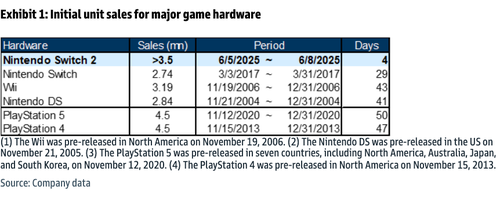
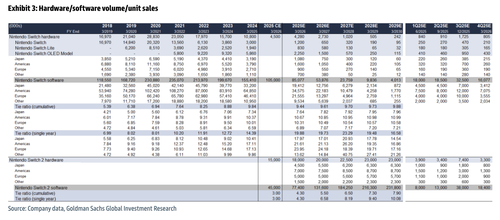
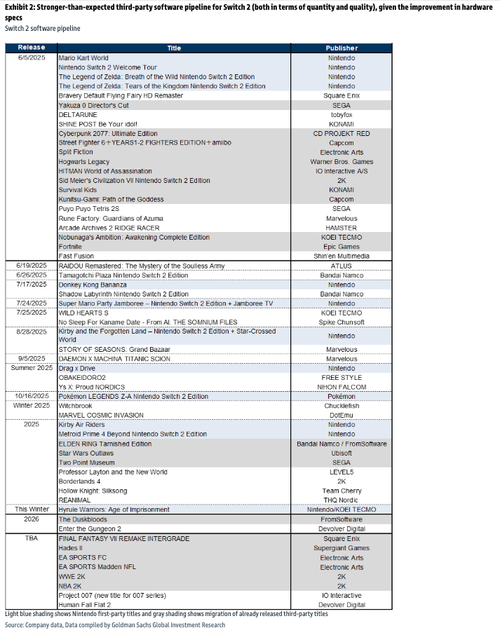

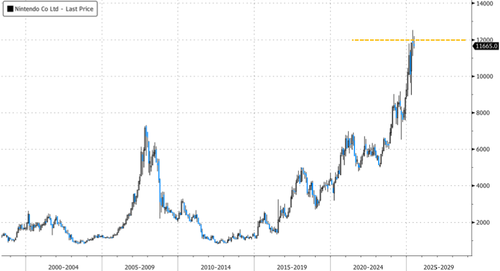

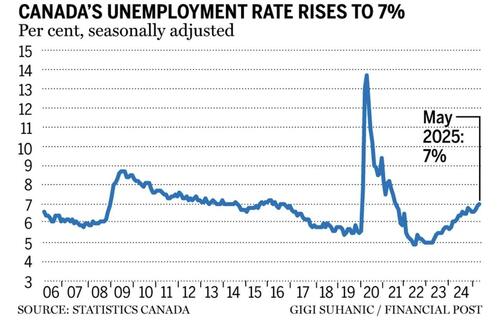



 A data center owned by Amazon Web Services, front right, is under construction next to the Susquehanna nuclear power plant in Berwick, Pa., on Jan. 14, 2024. Ted Shaffrey/AP Photo
A data center owned by Amazon Web Services, front right, is under construction next to the Susquehanna nuclear power plant in Berwick, Pa., on Jan. 14, 2024. Ted Shaffrey/AP Photo

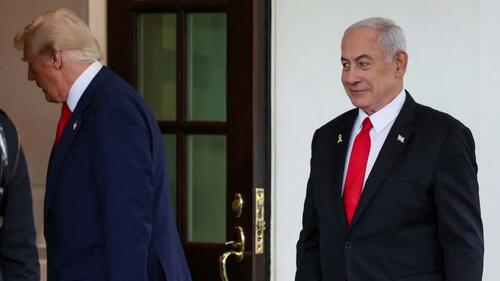 Via Reuters
Via Reuters
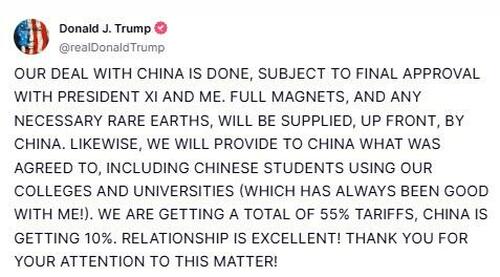

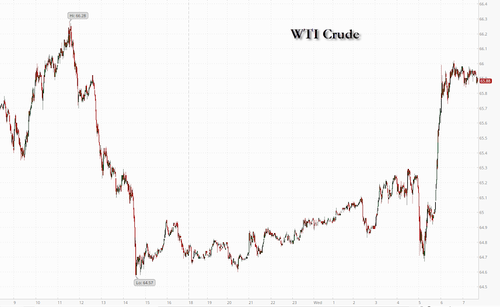
 Via AFP
Via AFP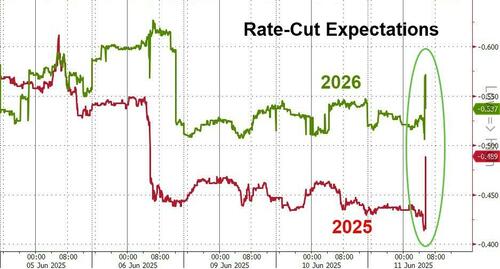
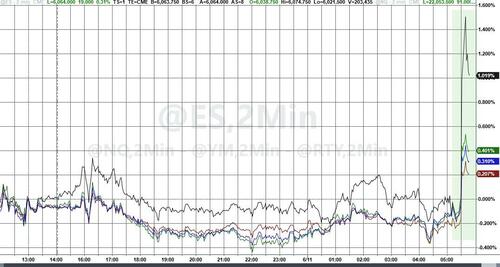
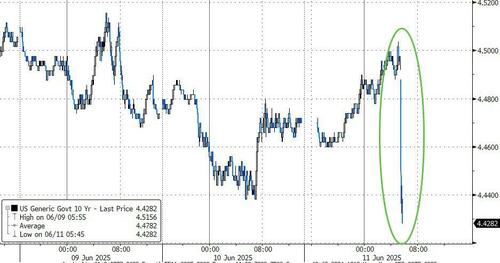
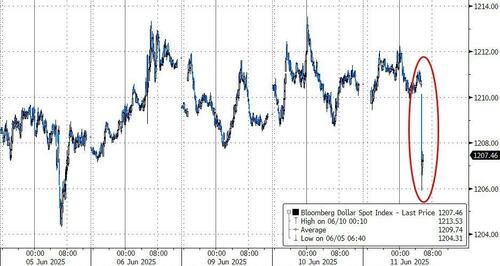
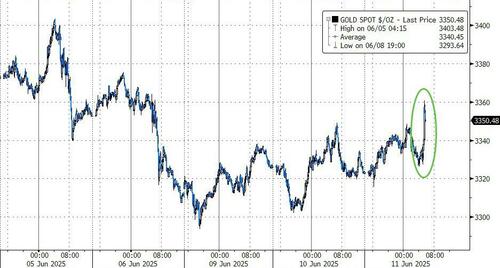

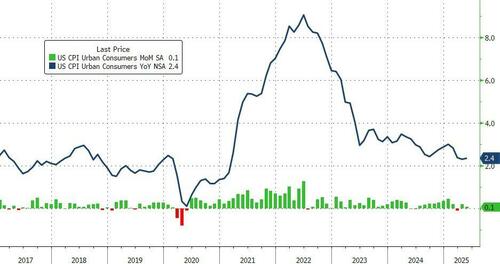
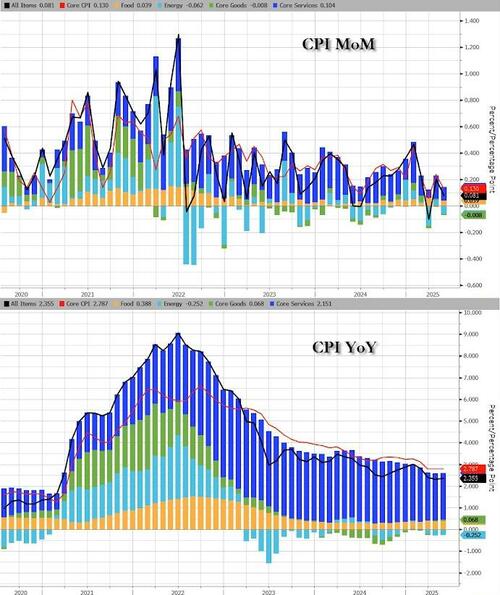
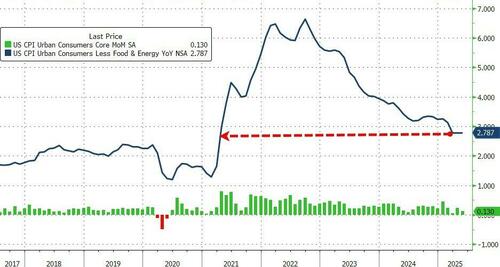
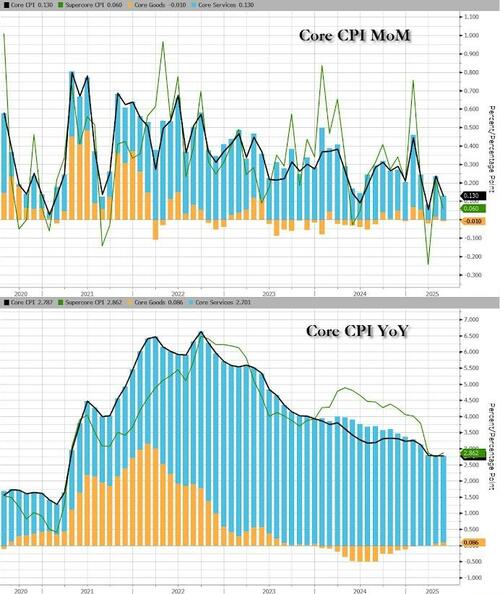
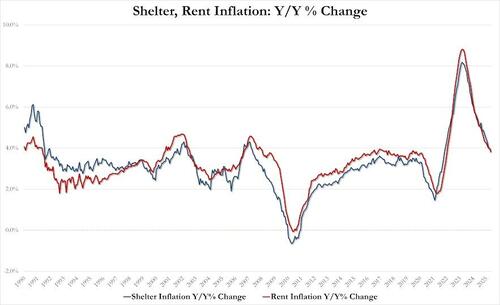





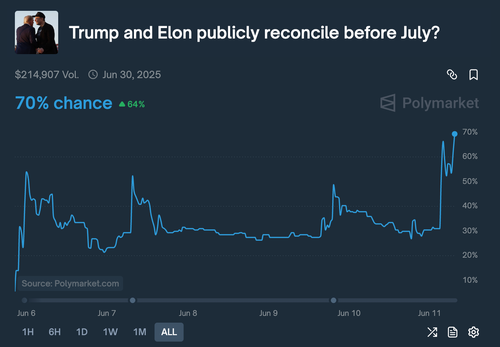
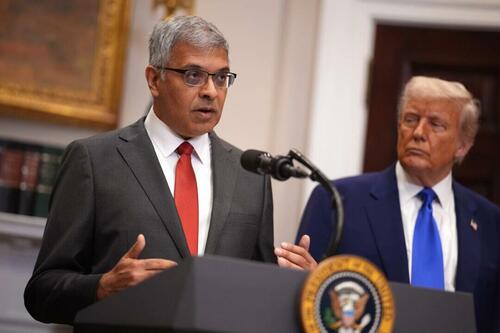 NIH Director Jay Bhattacharya speaks alongside President Donald Trump during a press conference at the White House on May 12, 2025. Andrew Harnik/Getty Images
NIH Director Jay Bhattacharya speaks alongside President Donald Trump during a press conference at the White House on May 12, 2025. Andrew Harnik/Getty Images